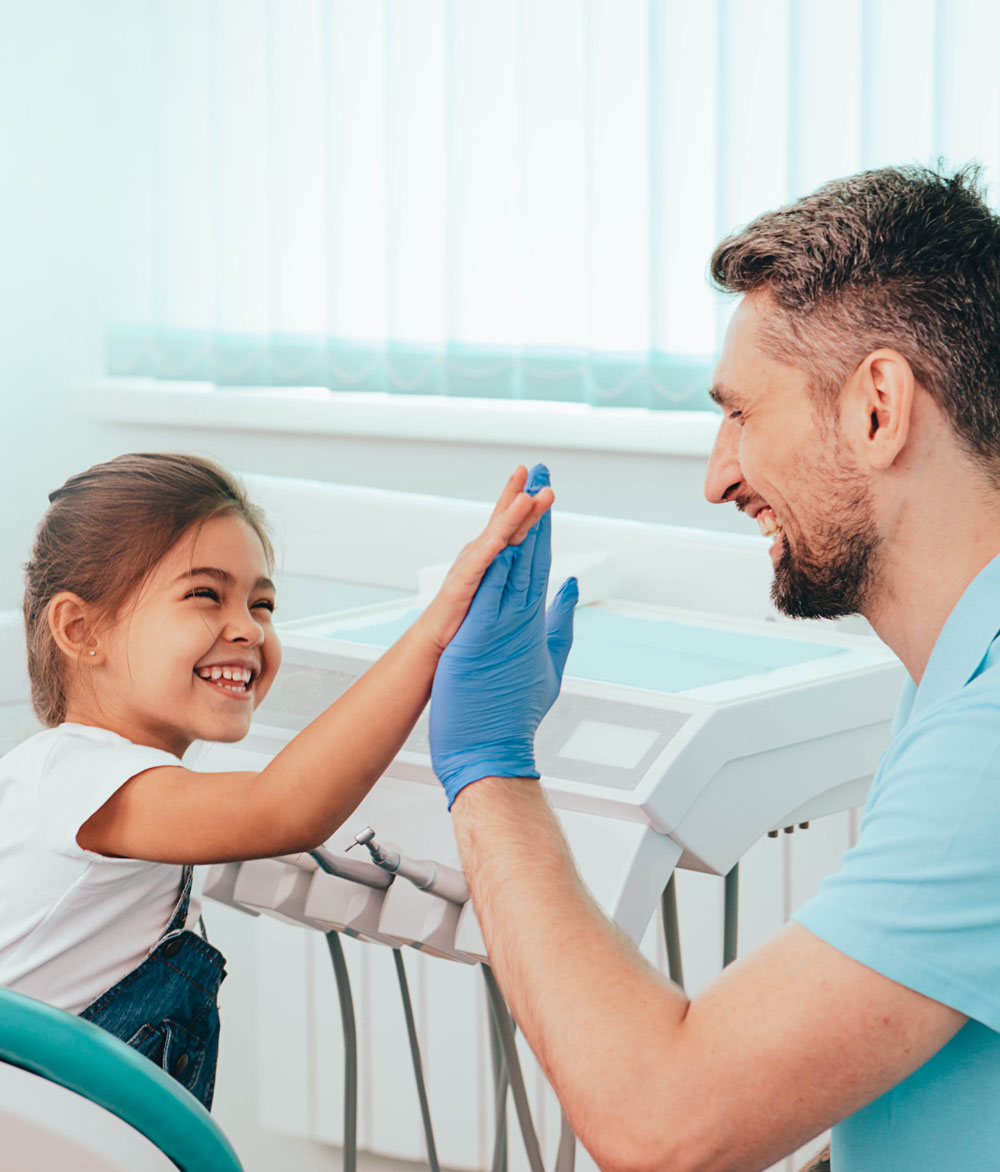Here are a few commonly asked questions many parents have about pediatric dental care.
A child should first visit Dr. Welch and Dr. Schilt when they are 6 months old. Early preventive care and the establishment of good oral hygiene habits at home will help maintain a child’s smile, while also working to establish trust and a positive attitude about visiting the dentist.
The biggest threat to a child’s oral health is Early Childhood Carries (also commonly referred to as Nursing Carries or Baby Bottle Tooth Decay). From the moment a child’s teeth erupt from the gum line they become at risk for tooth decay. The earlier a child starts to receive regular dental care, the better the chance of preventing long-term oral health problems from developing.
Preventive care always offers a better alternative to treatment. Parents can help to prevent the development of tooth decay in kids through scheduling regular dental visits, maintaining oral hygiene at home, and balancing their child’s diet with proper nutrition. To prevent any accidental oral trauma, parents should pay close attention to pacifier, play toys, and car seats.
Between the ages of six months to 3 years, children may develop tender gums when teeth erupt. It’s not uncommon for kids to chew on their toys and fingers and drool excessively when their teeth are erupting. Children can also become rather fussy and cranky during teething, and might develop a mild fever due to dehydration, drooling, and placing unclean fingers and toys in their mouths. Make sure to provide a child with clean toys, cold washcloths, or frozen rings to provide some temporary relief during the teething process. Even the act of gently massaging a child’s gums with a clean finger can help alleviate some discomfort she may experience.
From birth, a child needs to have his or her gums cleaned with a soft wash cloth after every feeding. When a child’s first tooth fully erupts, parents can begin brushing their child’s mouth twice a day using toothpaste and a toothbrush that’s age-appropriate in size.
For kids under the age of 2, simply smear a small amount of toothpaste, roughly the size of a pinhead, on the brush. Kids between the ages of 2 to 5 should brush using a slightly larger, pea-sized dollop of toothpaste. Since kids lack the manual dexterity to properly brush their teeth, a parent or caregiver should assist kids with brushing until they are old enough to perform the habit correctly themselves. As a general rule, kids are old enough to brush on their own once they can successfully tie their own shoes.
Parents should also begin to floss their kids’ teeth as soon as adjacent teeth make contact to properly clean out bacteria and food particles that can become lodged between teeth.
A child’s baby teeth, or primary teeth, act as space holders that work to help guide permanent teeth into position once they begin to form. When a child loses baby teeth too soon, permanent teeth can come in crooked, crowded, or misaligned. The premature loss of baby teeth greatly increases the risk of needing orthodontic care or other expensive dental treatments to correct problems that could have been easily prevented through improved preventive care.
Dental x-rays are incredibly safe and pose no risk to a child’s health. Dr. Welch, Dr. Schilt, and our team at McKenzie River Dental utilize digital x-rays, which makes the x-ray process quick, comfortable, and safe.

